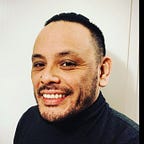Why Kanye West sadly reminds me of another celebrity of color
In 2008 I was invited over to a friend’s house to watch a boxing match between Manny Pacquiao and Oscar De La Hoya. I had viewed my fair share of boxing matches in the past, growing up in the 90’s amidst the height of Mike Tyson and his decimation of every opponent not named Buster Douglas. However, this was a fight unlike the others I’ve seen in the past…as for the first time I was watching someone who actually represented me — A Filipino-American, a fighter who looked kind of liked me, or at least, looked like someone I was related to.
The house was divided in its preference, but I was not…I was with the upcoming challenger Manny Pacquiao through and through, because he was a Filipino who stood in the ring on the world’s biggest stage, carrying the weight of not only himself, but of the entirety his people.
Pacquiao went on to not only win the match, but completely dominated in every facet imaginable. His speed, combined with the explosiveness of his punching prowess, was truly astounding to witness first hand, regardless of your ethnic origin. His punches carried the weight and conviction of an entire people, and we all felt it.
And it wasn’t like he was going up against another “nobody”. This was against a literal “Golden Boy”, the champ himself, Oscar De La Hoya.
That was the beginning of the legend that became the “Pac-man” and his meteoric rise to wealth, power, celebrity-ism, and fame. Filipino’s, Filipino-Americans, and boxing fans in general united under a familiar flag of the classic underdog…a man who fought for more than just himself. A real-life Rocky Balboa,with parallels between Philadelphia and the Philippines(just substitute the “-adelphia for -ippines”).
Match after match, Pacquiao saw unprecedented success, and Filipino’s cheered wildly with every successful win, even lowering the crime rate in his country when his fights were on. He defeated worthy opponents with the ease of a master at his craft, bludgeoning such renowned competitors as Juan Manuel Marquez, Miguel Cotto, Shane Mosley…and was eventually crowned as the best pound-for-pound fighter in the world at one point.
The “Pride of the Philippines” gave us something to be proud of.
And then something happened.
For some inexplicable reason, Manny Pacquiao stated a wildly unpopular opinion about the LGBT community that could not simply be ignored or erased. I won’t justify his thought by repeating it here, let’s just say that I not only felt disagreement, but resentment and pain-in the person that I had rooted for, for so long.
It’s not that he isn’t free to express his opinion, and Lord knows we all have things in our past we aren’t proud of, it’s the fact that he defended his stance by quoting the bible (based on a couple passages, ignoring the rest of its context) essentially trying to get us woke to his truth, and what he believes in.
It was at that moment I realized that there is a difference between a celebrity of the popular, more mainstream white culture, and a culture subdued by its under-representation, in this case-Filipino’s.
Because even between Filipino’s and Filipino-Americans there is a stark contrast between our beliefs, ideals, and culture (for example Filipino’s are much more religious than their cross Pacific counterparts) but how can we expect the mainstream consciousness to understand those nuances when there is no popular context for learning them?
And that’s the problem with Kanye West.
Ever since he made his controversial statements about slavery, there has been people on both sides, and all colors, debating about the freedom for him to speak his mind.
But the issue isn’t about the freedom to speak his mind, or even the freedom to have an opposing thought to the collective social construct…it’s about the weight that one carries when they represent the historically disenfranchised.
As the ridiculously, unfairly brilliant writer Ta-Nehisi Coates pens in his Atlantic op-ed of the artist;
“ West calls his struggle the right to be a ‘free thinker,’ and he is, indeed, championing a kind of freedom…a conqueror’s freedom, freedom of the strong built on antipathy or indifference to the weak”
Coates articulates and even empathizes with much of what Kanye must be going through-a person of color carrying the weight of a people on their shoulders, wanting, yearning to be free from those restrictive vices.
But while celebrities can afford to shield themselves from the repercussions of their words, the rest of us still standing in the arena cannot. Pacquiao doesn’t own or share many of my beliefs, but his words represent mine in social circles regardless. If I had a dime for every time someone asked me how I felt about Manny’s statements, being Filipino-American…well, I’d still be poor, but at least I’d have some compensation for the amount of ignorance that someone from my country of origin touted with no regard for its consequences.
If you’re going to drape a flag around your shoulders, carry the title of the Pride of the Philippines, claiming to fight for your country, then you need to act as ambassador for everyone you represent, and not just yourself. Likewise-if Kanye is going to make songs about the struggles of inner-city youth, claim to be this generations black Beatles, and attempt to speak out for all black people like he did with Mike Myers, he needs to understand the context of his opinion.
One of the great comic book movie quotes of all time came from Spider Man’s “With great power comes great responsibility” mantra. It is with this I would say that people like Kanye, Manny, and other POC with a large mouthpiece must do better…choosing their words carefully, and researching matters more diligently and thoroughly than their white counterparts - Because they speak on behalf of us all….whether we want them to or not.
